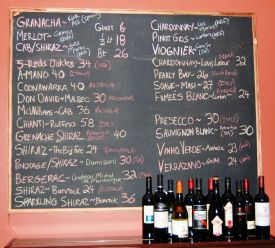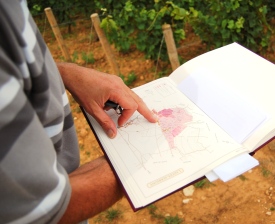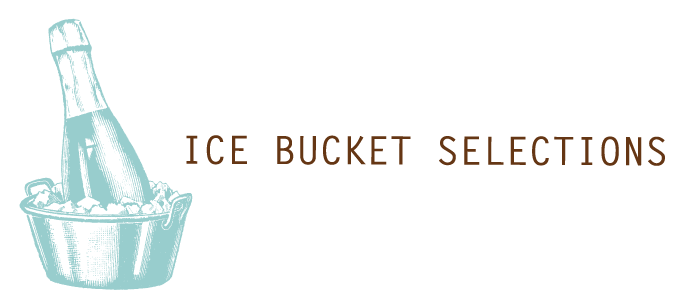IF YOU KEEP SCORE, YOU CAN'T COUNT
 Friday, September 10, 2010 at 02:08PM
Friday, September 10, 2010 at 02:08PM It’s been awhile since I’ve posted anything on these “pages.” While I was away, it appears that the blogosphere has fixed its collective site on the 100-point scale. That interests me.
Certainly, this isn’t a new topic. The “traditional” media has touched – a very intentional word choice – on it from time to time. But that media, meaning magazine and book writers in particular, had a stake in it, too. After all, the scoring of wine became a commercial necessity post-Parker’s famed (infamous?) musings about the 1982 Bordeaux vintage as he found it in barrel.
The bloggers, as I’ve been reading over the last month or so, have been having a veritable smack down with it. The opinion ranges from scoring systems are bullshit to scoring systems serve some purpose, albeit one that should be limited in scope. There are others who take the middle road, arguing, essentially, that scoring systems are what they are, it’s the notes that truly matter.
The arguments have, no doubt, been made continuously since there was a blogosphere; it just seems like there has been more of the arguing lately. They’ve all, obviously, also been made before there was a blogosphere, usually more formally, given the style guidelines of the very grownup media those writers wrote for.
After reading this latest batch of thousands of words against (mostly), tolerating (surprisingly, a lot more than I had anticipated) and some in favor, it all finally makes sense to me now.
Scoring wines is wrong. It’s just that simple.
Not, of course, wrong like it should be illegal. Or that those who continue to do so are idiots. Not at all. I have no doubt that the opinions held by the Old Guard (the troop I came from) or the New are done so ardently and with reason. But still, I just see no point to any scales any longer.
And I didn’t used to feel so sure. I came up scoring wines on a 100-point scale. Thousands and thousands of them, in fact. I bet even Parker gets 100-point fatigue from time to time (not sure Wine Spectator does, however). It can become numbing. At some point, no matter how seriously any scorer takes his/her job, he/she must think, what on earth am I doing this for? Maybe it’s a passing thought or maybe they become subversives (see, e.g., @fakewinereviews on Twitter; for the record, not as funny as @fakeapstyle).
At the end of the day, how can any of us posit that this one is an 87 and this one’s an 88? OK. That’s not a great argument against. However, there is more than a kernel of truth to it. Wine is a living thing. We can all agree with that, can’t we?
And we should also be able to agree that if we all opened the same bottle at the same time, the chances are that there would be a fairly ample score disparity. It might only range from, say, the 85ers to the 89ers. But to that producer, that’s a huge spread. For consumers who buy strictly on so-and-so’s ratings, it’s of vital importance.

And what’s even more true is that a score reflects (assuming it even does that) a specific point in time for that wine, whether the scorer contemplated the glass for two minutes or 20. And honestly, people who score wines don’t wait 20 minutes to come up with the number unless they’re doing a special type of tasting. So, the time period that actually sets that wine’s merit (or lack thereof) in stone (print) is probably about five minutes, plus or minus. How crazy is that? If I spent 45 minutes with that Chianti, it would bear little resemblance to itself at five minutes open.
Scores are like financial statements. They show the wine’s P&Ls at one moment in time. And we all know how a financial statement can be healthy one minute (month) and not so the next.
A snapshot of anything shows only that anything at that precise moment. And I know for a fact that every time I open the same bottle at different times, the wine just isn’t the same. Sure, there will be some family traits, but the big lie that is – intentionally, or what I prefer to think, unintentionally – foisted on the consuming public is that the 92 assigned is the end of, rather than the start of, the discussion about that wine. That’s why people collect reams and reams of buying guides.
And it’s just not true. How’d you like to be sized up and dismissed out of hand after getting a five-minute onceover at a bar? We’ve all been there. Can you hear that battered Soave plaintively begging to just be given a chance?

Even worse, when you try to correlate different systems – puffs, 25-pointers, checkmarks, pluses/minuses, whatever – it’s like speaking Latin to someone who talks in tongues. Is three out of five, which, according to my paltry math skills, is 60%, really the same as a 60 on a 100-point scale? Of course not. So, what is it then? An 85? Is it? Why should I know that? Or more to the point, why should I even have to think about it?
The scorers don’t even speak the same math. I’ve done some judging in France where a range is used for each component (sight, smell, taste, overall) and the total doesn’t end up being 100. Twenty points awardable for nose; 10 for hue, 12 for this, 8 for that, etc. I don’t even know where to start. I end up just mumbling, “Pas mal,” and hope it’ll be over soon.
And the gods forbid if any of the scorers have a bias (or blind spot). There was a guy on the tasting panel I plied my primary scoring on who just didn’t believe that a Chianti could EVER merit a 90 or above. And he was no dope. He had a good palate and he was very deliberate about his tasting. But he just didn’t get Chianti (or maybe sangiovese). I’d argue with him, but at the end of the day, he was no more “right” or “wrong” than I was about my French/Italian bias. We liked what we liked, and we tried to be open minded about that other stuff.
Perhaps if all of the raters used the same scale with the same criteria there would be some sense to the math. But that’s never going to happen. The only purpose a numerical (or any other system) can possibly serve is as a shorthand summary of how “good” a wine is for consumers who probably don’t know anything about that wine, where it’s from or the producer who makes it. In other words, scores are, if they are anything, crutches leaned on by the ignorant or lazy.
No offense intended. I’m lazy and ignorant about plenty of things. Just not what I put in my mouth.
This has already exceeded the permissible word count. Sorry about that, but thanks if you stayed with me. Next time, I will do my best to unmask the fraud that is the tasting note. And the time after that, offer what I believe to be the only sensible way to characterize wine in print.


Reader Comments (2)
Todd:
Well said. I especially like your thoughts about points meaning different things to different tasters. It's clear this can never be stratified.
Bottom line - wine is a personal, sensory experience. We all taste differently. How can you put a number on that?
Hi Tom
Thanks for taking the time. Were it only as simply correct as you suggest!
For those who don't know him, Tom is a writer of some renown, particularly regarding Italian wine. And had the good (or mis?) fortune of being edited by me during my Wine News days. There, he had to score wines, but as anyone who reads my next installment on this subject will see, brought more to the table than a number.
Tom, you must have got wind of my pecking fingers. I typed your name just yesterday!